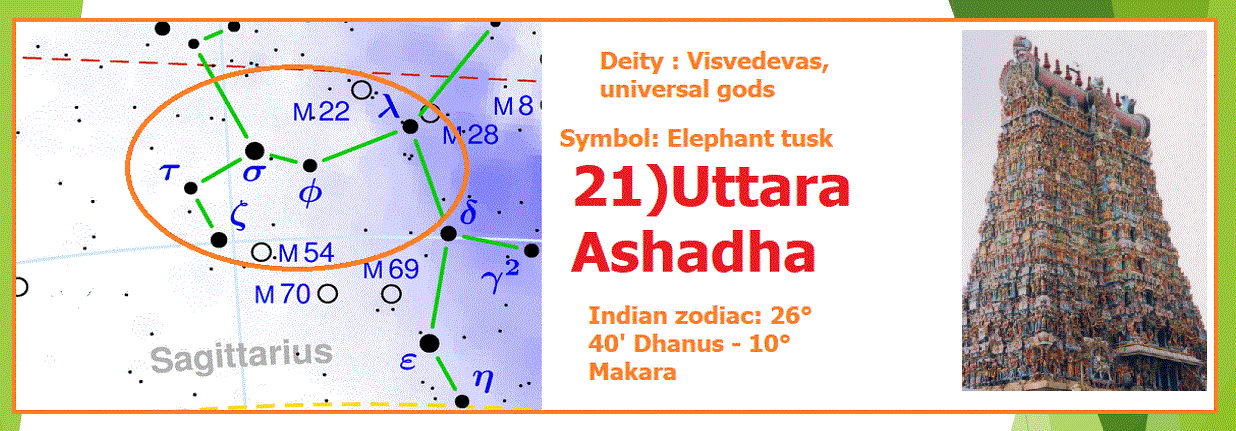

#UttaraAshadha #Nakshatra is the 21st Nakshatra as per Hindu #astrology in #Sagittarius #constellation.
#Uttarashadha is ruled by the #Universal #Gods ( #Vishvedevas).
The Visvedevas are the various Vedic gods taken together as a whole. In the #Rigveda a number of hymns are addressed to them, including (according to Griffith) 1.89, 3.54–56, 4.55, 5.41–51, 6.49–52, 7.34–37, 39, 40, 42, 43, 8.27–30, 58, 83 10.31, 35, 36, 56, 57, 61–66, 92, 93, 100, 101, 109, 114, 126, 128, 137, 141, 157, 165, 181.
RV 3.54.17 addresses them as headed by Indra: This is, ye Wise, your great and glorious title, that all ye Deities abide in Indra. (trans. Griffith)
Though many devas are named in the Rig Veda only 33 devas are counted, eleven each of earth, space and heaven. In later Hindu scriptures, they form one of the nine ganadevatas (along with the Adityas, Vasus, Tushitas, Abhasvaras, Anilas, Maharajikas, Sadhyas, and Rudras). According to the Vishnu Purana, they were the sons of Vishvā, a daughter of Daksha, enumerated as follows: 1. Vasu 2. Satya 3. Kratu 4. Daksha, 5. Kala 6. Kama 7. Dhrti 8. Kuru 9. Pururavas 10. Madravas, with two others added by some, 11. Rocaka or Locana, 12. Dhvani Dhuri
Sometimes it is unclear whether a reference to Vishve-devas refers to all Devas collectively, as in the Rigveda, or to the specific group as enumerated in the Puranas.
According to Manu (iii, 90, 121), offerings should be made daily to the Visvedevas. These privileges were bestowed on them by Brahma and the Pitri as a reward for severe austerities they had performed on the Himalaya.
The Viswadevas incarnated on Earth due to the curse of sage Vishwamitra, as the 5 sons of Draupadi with the Pandavas — the Upapandavas. They returned to their original form after being killed by Ashwatthama at night.
https://www.farfaraway.co/blog/uttara-ashadha-nakshatra-characteristics
There are no comments yet.